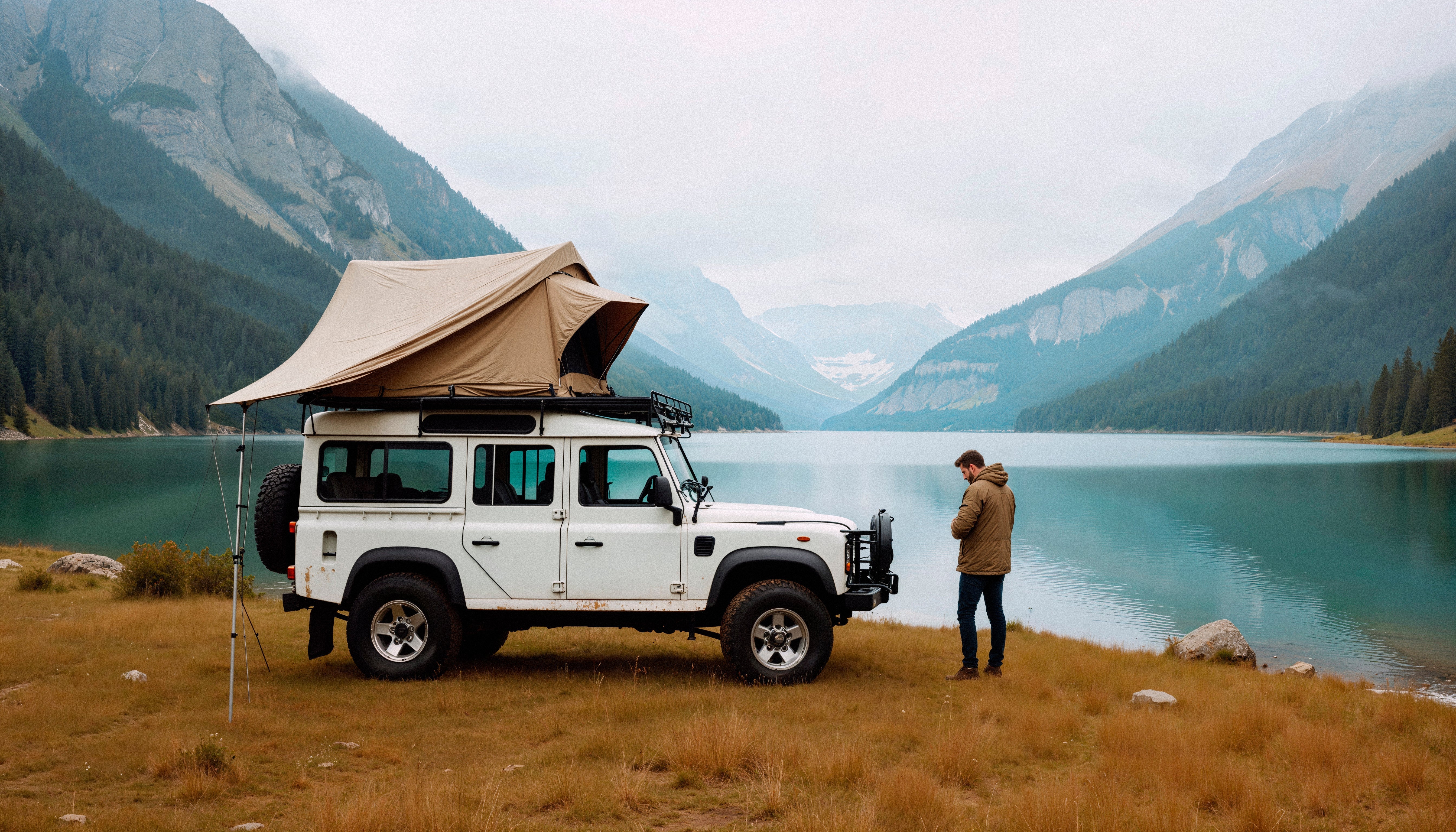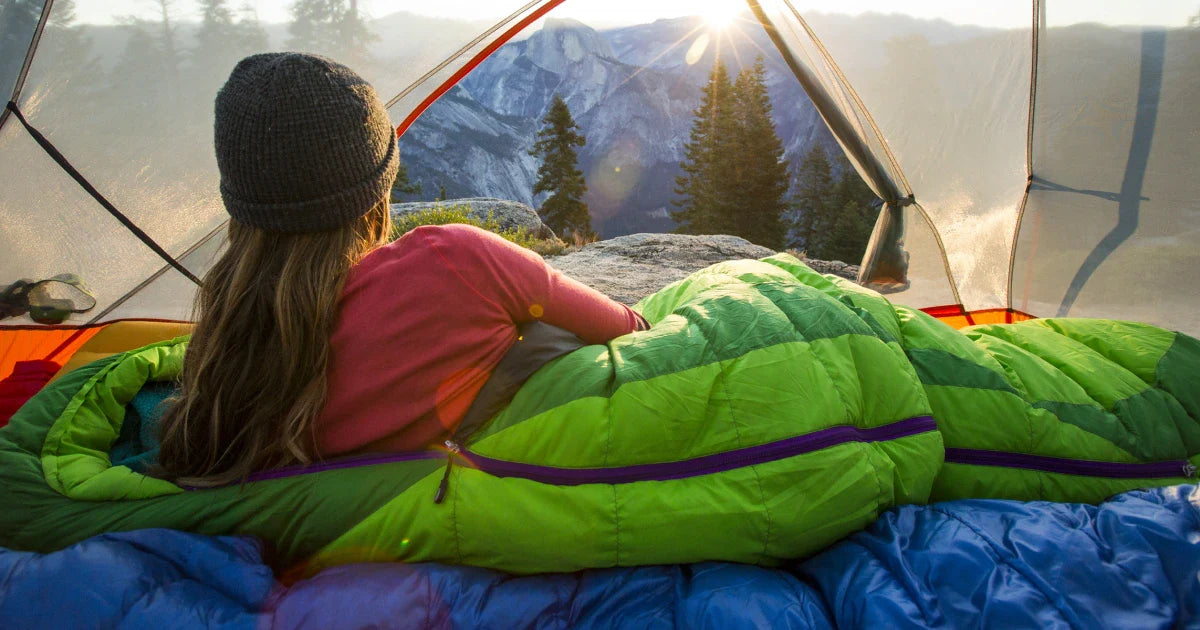
Car Camping or Tent Camping? Pros, Cons, Comfort, and Costs
When it comes to outdoor adventures, nothing beats the freedom of sleeping under the stars. But how you choose to experience it — car camping or tent camping — can dramatically shape your trip. Each style has its fans, benefits, and drawbacks.
If you're wondering which one is right for your next adventure, this guide will walk you through everything: comfort, costs, pros, cons, and how to make the best choice based on your needs.
What is Car Camping?
Car camping usually means driving to your campsite and either sleeping inside your vehicle or pitching a tent close to your car. Some people simply fold the seats down, set up an air mattress inside, and sleep in their car, SUV, or van.
Car camping offers more convenience and comfort — you have easy access to your gear, and you don’t have to carry heavy backpacks far into the wilderness.
What is Tent Camping?
Tent camping is the classic camping style most people imagine: setting up a traditional tent away from your car, sometimes deep into a trail or a remote site. You carry your tent, sleeping gear, and food on your back if hiking to a site, or set it up at a campground.
Tent camping is all about immersing yourself in nature, offering an authentic outdoor experience.
Car Camping vs. Tent Camping: Pros and Cons
|
Car Camping |
Tent Camping |
|
|
Pros |
✅ Easy access to gear and supplies |
✅ Closer connection to nature |
|
✅ More protection from weather and wildlife |
✅ Access to remote, beautiful locations |
|
|
✅ Faster and easier setup |
✅ Budget-friendly with basic gear |
|
|
✅ Better sleeping comfort in cold/rainy weather |
✅ More space and freedom to camp almost anywhere |
|
|
Cons |
❌ Limited to places cars can reach |
❌ Exposed to weather and wildlife |
|
❌ Less "wild" or immersive experience |
❌ Requires more setup time and effort |
|
|
❌ Space inside vehicle can feel cramped |
❌ Must carry gear (can be heavy for long hikes) |
|
|
❌ Dependent on vehicle functioning |
❌ More affected by rain, wind, and uneven terrain |
Comfort Comparison: Which One Feels Better?
Car Camping Comfort:
-
A car interior can be warmer and drier.
-
Mattresses or padded sleeping setups are easier to use.
-
You have quick access to food, supplies, and entertainment.
Best for: Families, beginners, people with physical limitations, or cold-weather campers.
Tent Camping Comfort:
-
A sleeping pad and quality sleeping bag can make tent camping very comfortable.
-
Being outside at night feels refreshing and peaceful.
-
You have more space to stretch out, especially with large tents.
Best for: Adventure seekers, solo travelers, and those wanting a true wilderness feel.
Cost Breakdown: Car Camping vs. Tent Camping
Car Camping Costs:
-
Vehicle Modifications (optional): $100–$2,000 (for mattresses, storage, curtains, etc.)
-
Campground Fees: $15–$50 per night
-
Portable Accessories: $50–$300 (coolers, lanterns, stoves)
-
Fuel Costs: Varies based on location.
Tip: Some free camping (boondocking) is available on public lands.
Tent Camping Costs:
-
Tent: $100–$500 (depending on size and quality)
-
Sleeping Bag: $50–$250
-
Sleeping Pad: $40–$150
-
Camp Kitchen Gear: $50–$200
-
Campground Fees: $10–$30 per night (or free on public land)
Tip: Investing in durable camping gear saves money over time.

When to Choose Car Camping
-
Short Weekend Trips: Quick getaways where setup time is limited.
-
Bad Weather Forecasts: Safer and drier during storms.
-
Family Camping: Easier to manage kids and gear.
-
Remote Road Trips: When you need flexible sleeping arrangements along highways.
When to Choose Tent Camping
-
Backcountry Adventures: Access to remote trails and hidden spots.
-
Budget Trips: Lower costs if you already own gear.
-
Immersive Nature Experiences: Feel closer to the environment.
-
Personal Growth: Learning survival skills and self-reliance.
Tips for the Best Car Camping Experience
🚙 Invest in a good sleeping pad or car mattress.
🚙 Use window shades or DIY curtains for privacy.
🚙 Keep an organized storage system for quick access.
🚙 Bring portable fans or heaters depending on season.
🚙 Always crack a window for ventilation while sleeping.
Tips for a Comfortable Tent Camping Adventure
⛺ Choose a high-quality, waterproof tent.
⛺ Pack an insulated sleeping pad for warmth and comfort.
⛺ Bring bug repellents and netting.
⛺ Store food properly to avoid attracting wildlife.
⛺ Practice Leave No Trace principles to protect nature.
1. Which is more comfortable: car camping or tent camping?
Answer:
Car camping is generally more comfortable because your vehicle provides built-in shelter, insulation, and protection from weather. You can also bring larger mattresses, heavier blankets, and amenities like fans or heaters.
Tent camping can still be cozy, but comfort depends heavily on your tent quality, sleeping pad, and weather conditions.
2. Is car camping cheaper than tent camping?
Answer:
Car camping can save money if you already own a suitable vehicle, but you might spend more on gas, parking fees, or campsite reservations that allow vehicles.
Tent camping usually requires less money upfront, especially if you hike into free dispersed camping areas, but you may need to invest in good camping gear (tent, pad, sleeping bag).
3. Can I car camp anywhere?
Answer:
Not exactly. Car camping is often allowed only in designated campgrounds, rest stops, or public lands where "overnight parking" is legal.
Always check local regulations to avoid fines. Some national forests and BLM (Bureau of Land Management) lands allow free car camping, but not everywhere.
4. Is tent camping safer than car camping?
Answer:
Both can be safe if you prepare properly.
-
Car camping offers more immediate protection against wildlife, extreme weather, and even theft.
-
Tent camping exposes you more to nature but with the right campsite choice and safety practices (storing food away, weather checks), it is also safe.
5. What gear do I need for car camping vs. tent camping?
Answer:
-
Car camping essentials: Sleeping bag, inflatable mattress or cot, cooler, portable stove, privacy tent (for toilet/shower), lighting, and emergency tools.
-
Tent camping essentials: Tent, footprint or tarp, sleeping bag, pad/mattress, compact stove, backpack, bear-safe food storage, headlamp, and water filtration system.
6. Is it easier to camp with a tent or a car?
Answer:
For beginners, car camping is easier because you don't need to worry about tent setup, ground conditions, or sudden rainstorms.
However, tent camping becomes easier with practice and offers greater freedom to explore wild and remote places.
7. Can I combine car camping and tent camping?
Answer:
Absolutely! Many campers set up a base camp with their car nearby and pitch a tent for extra sleeping space or gear storage.
This way, you get the best of both worlds — convenience and adventure.
8. What’s better for bad weather: car camping or tent camping?
Answer:
Car camping tent is much better for rainy, cold, or windy conditions.
Vehicles naturally insulate against wind and cold, while tents can get flooded, collapse, or freeze if not properly set up for the weather.
Final Thoughts: Which Should You Choose?
There’s no one-size-fits-all answer — it depends on what you want from your outdoor experience!
-
Choose Car Camping if you prioritize comfort, safety, and convenience.
-
Choose Tent Camping if you crave adventure, want to disconnect, and explore wilder, more remote areas.
Mix and Match! Many experienced adventurers combine both styles depending on the trip. You might car camp one weekend, and backcountry tent camp the next.
Ready to Explore the Outdoors?
At Trekker Essentials, we believe adventure should be accessible and comfortable.
✅ Shop high-quality tents, sleeping gear, portable kitchens, and outdoor essentials.
✅ Whether you're car camping or tent camping, we’ve got everything you need to enjoy the journey.
👉 Explore Trekker Essentials Camping Gear Collection!
Experience the outdoors your way — and make every trip unforgettable! 🌲🚙⛺








